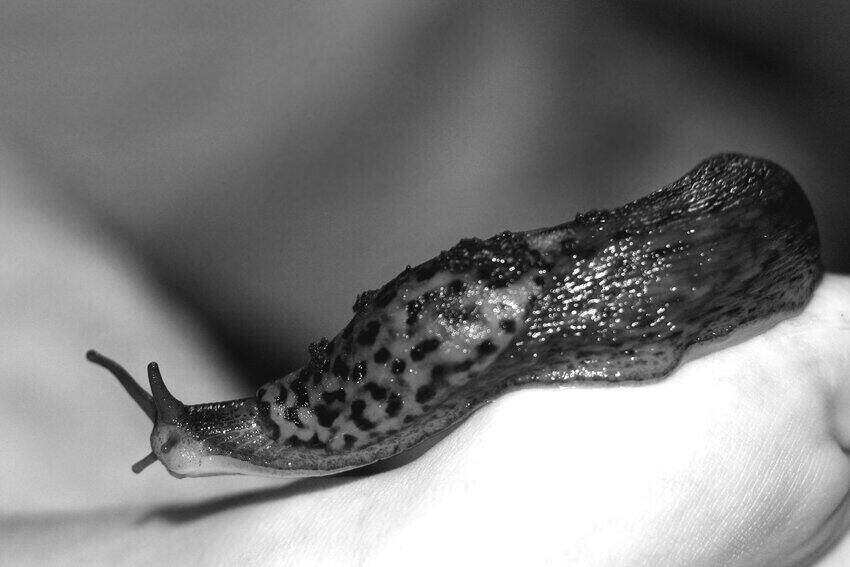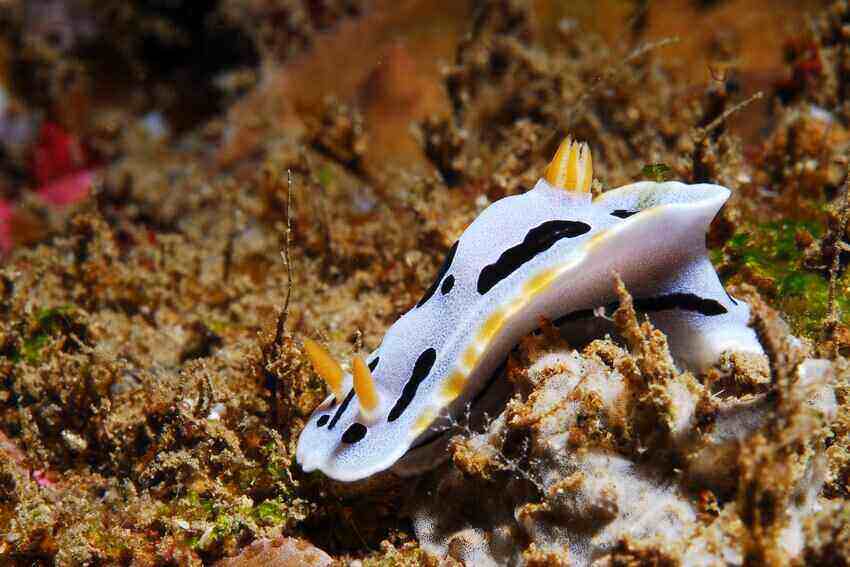Slugs, also known as a gardener’s slimiest nightmare, can turn your beautifully curated garden into a mess overnight. When these creatures are feasting on your plants, making holes here and there, the damage is almost inevitable.
Discovering slugs in your compost pile can definitely scare the life out of you, and very justifiably so. This brings us to the question of why are there slugs in my compost. Are slugs good for compost? How to deal with them?
But what if we told you there is nothing to fret about having slugs in your compost? Yes, sometimes slugs are for plants. So, let’s know when slugs are good and when they are bad for compost in detail.
Are Slugs Good for Compost? A Reality Check:

Before we hop on the good and bad side of having slugs in the compost, let’s discuss first why slugs live in compost, then we’ll cover the slug compost conundrum.
Why Do Slugs Are in Compost Piles?
Slugs are omnivorous creatures – meaning they will eat just about everything! Be it leaves and stems of your plants, worms, animal waste, other snails, or fungus– they’ll eat it. However, they are also known as detritivores so, they also totally love dining on decaying or rotting substances.
Do you know, what draws slugs toward your compost pile? Some slugs, in fact, would prefer softer food (like rotting matter) over plants and animals because of their teeth. Garden slugs have a set of 12,000 rubber-like teeth, known as radula and this makes decaying substances a better choice for slugs that find it difficult to chew on brittle food.
Besides, slugs look for damp, dark, and warm environments since they tend to lose their body moisture in dry environments and might eventually die. So, what better place than compost bins to provide a suitable habitat for slugs?
Are Slugs Good for Compost?
1. Help to Find out Problems in The Compost
Slugs in your compost are a hint of too much wetness. If your compost is too wet, it can become way too compact to even allow air to pass through, making them a hot breeding ground for microbes that not only are harmful to your plants but also cause a foul odor lingering from your compost.
If there are a lot of slugs in the compost pile, you might check for the moisture level in your compost. Try taking a handful of compost and squeezing them hard to release the liquid and if more than two drops of water are released, you will know that the compost has excess moisture.
2. Shortening The Composting Time
Home composting can take anywhere from 6 weeks to more than a year, and how do we yearn for the process to be faster? The good news is – that slugs can come in handy in speeding up the composting process.
Slugs are natural decomposers and they aid the composting process by eating organic matter like kitchen waste and decaying vegetation that might otherwise take a long time to decompose.
3. Provide Healthy Nutrients
If slugs end up dying in your compost pile, their remains will release nutrients into you’re composting, boosting its nutrient level. Your plants will feed off these nutrients and thank you later!
So, as we can see, the benefits of having slugs in your compost are plenty. In fact, seasoned gardeners will often deliberately place slugs in the compost pile.
Are Slugs Bad for Compost?
You may be worried that the slugs will eventually relocate from the compost bin to your garden, damaging your plants in the process. But what if we told you that provided all the constant rich food they will be getting, slugs might as well spend their entire life in the compost?
That is right, slugs tend to live for 6 months to a year on average, and, likely, they will just die in your compost bin.
Another worry is that as slugs populate and lay eggs in the compost bin and later when you spread the compost in your garden, the baby slugs will attack your plants! The apocalypse!
But let us assure you that this is not much big of a deal either. Because first, the chances are that the eggs will be eaten by other critters in your compost like worms and beetles. Assuming that they even survived that, the eggs might actually be crushed by the weight of your compost and be a part of your compost instead.

How to Get Rid of Slugs in Compost?
A large number of slugs in the compost pile may come across as scary for gardeners. As mentioned earlier, too many slugs indicate that your compost is too wet. What can you do to get rid of them?
1. Adding Dry materials
To remove excess moisture from your compost, you can consider adding more ‘brown material’ to it. This includes any carbon-rich components like shredded newspaper, cardboard, dried leaves like the lily or apple, etc. which would soak up the moisture.
2. Manually Remove The Slugs
Having said that, probably the most effective way would be to manually remove them from the compost. But provided there are too many of them, that can be a tedious job. Besides, the chances of them crawling back to the compost bin are high.
3. Natural Predators
Instead, you can release natural slug predators into and around your compost pile like chickens, ducks, hedgehogs, turtles, frogs, ground beetles, etc. so feeding on slugs can be a great way of combatting slugs in your compost.
In fact, some cannibal slugs like the leopard slug have earned the title of being a gardener’s friend since they feed on other plant-eating slugs, and releasing them into the compost bin can be another way of getting rid of slugs.
4. Add Nematodes
Nematodes are another great way to stop slugs in compost. These small wombs are used as a predator of slugs and are quite expensive. But they are also one kind of natural slug pellet. Phasmarhabditis hermaphrodite is a species of nematode that lives as a parasite in slugs and kills the slugs from the inside out. This leads slugs to death within a few days.
5. Use Slug Proof Bin
You can make the bin slug-proof. Raised or fully enclosed bins are harder for slugs to climb on. Some Dalek-like bins have moist corners and crannies to live slugs. And some bins don’t touch the ground, thus slugs don’t reach there easily.
6. Hot Composting
Hot composting is an infrequently used technique that can bring the time of composting by leaps. In hot composting, the compost pile is stirred regularly to allow proper aeration and a standard ratio of carbon to nitrogen content is maintained to hold up an ideal temperature at which microbes work best to decompose.
Since in this process, the compost loses its moisture rapidly and is heated up, slugs cannot strive.
7. Beer Slug Trap
Slugs are attracted to the yeast odor released by beers. Placing a beer trap is an effective way of getting rid of these slimy beings. To make a beer bait, all you need to do is fill in a half-cut plastic bottle with any inexpensive beer and place them in the ground surrounding your garden.
The slugs will be drawn toward the beer and will eventually drown and die in them before being able to access your garden.
But do note to never use pallets or poison to kill slugs because they tend to kill other microbes that are responsible for breaking down the organic matter in your compost.
Also, if the slugs end up dying in your compost from poisoning and decomposing in your compost bin, they will release toxic ingredients in your soil, which in turn will harm your plants.
8. Copper Wire Fencing
Slugs dislike copper because they induce an electric shock-like feeling when they come in contact with it. Surrounding your garden with copper wire fencing can not only keep slugs away from your compost but also protect your plants from them.
9. Eco-Friendly Chemicals
The compost includes different kinds of living animals including slugs. If you apply chemicals to compost bins to kill slugs there is a high chance of killing the beneficial insects. Thus we are highly discouraged to use pesticides. Still, if you decide to use chemicals go for less harmful iron phosphate-based ones rather than metaldehyde-based toxic pesticides.
FAQs On Slugs In Compost
How to get rid of slug eggs in compost?
Slug eggs appear clear and milky that are found in clusters or lines instead of individual balls. If you see slug eggs in the compost, just spread them and keep them in the sun for a day, then birds will eat the eggs.

Image Source: Anna Hesser
Can I compost dead slugs and how do decompose them?
Yes, you can compost the dead slug easily. Slugs are typically composted quickly due to their heavy moisture content. You can use a bucket of salty water for making compost, but this is not a good idea as too much salt can
Besides composting dead slugs, you can dispose of them in several ways. Some of them are- thrown in the trash bin buried and scattering them around your yard or a local forest.
Conclusion on Slugs in Compost Good or Bad
So, are slugs good for compost? Although some people consider slugs a little threat to the garden but they are not as much of an enemy as they might appear. Moreover, they do some benefits for compost and gardens. And when necessary you can
If you want to speed up the composting process naturally, slugs can be of great help, and also they can hint at other complications with your compost pile. However, you can adopt preventive measures and keep them away from your garden overall to avoid damage to your plants at all costs.

I’m Shofi, a passionate gardener and blogger. I have 10+ years of experience in gardening and hold certifications in horticulture and garden design. I share my knowledge and skills through my garden blog to inspire and educate others on the joys of gardening. I try to provide valuable information and create a community for gardeners of all levels to connect and learn. My ultimate goal is to inspire others to start their own gardens and connect with nature.
